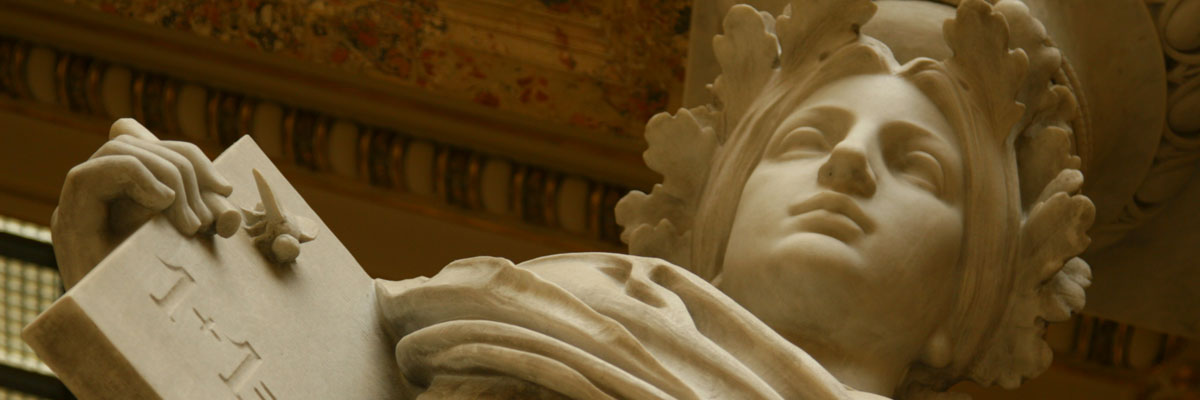
News archive
Search
Selected range: all newsEnergy supply can be considered the Achilles heel of the modern world, and it is increasingly the center of attention for experts, politicians, and the general public alike. Today, producing energy is not so much the issue. What’s more pressing is how to store or transport energy efficiently, cheaply, and safely. In this respect, our prospects might be improved by a new type of aqueous battery on the basis of saline water, developed by researchers from the Institute of Physics of the CAS and the J. Heyrovský Institute of Physical Chemistry of the CAS.
Starting today, those who visit the main building of the CAS will be able to experience the adventure of discovering and encountering faraway places and cultures at the Czechoslovakia in the Orient: The Orient in Czechoslovakia 1918–1938 exhibition. On view are also artefacts brought from the Orient and objects that were intended for export to these countries from Czechoslovakia.
This year, ornithologists have counted only 62 chicks in the nests of 26 pairs of the little owl. This is similar to last year, and even less than in 2020. Boosting the population of the critically endangered owl in the Czech Republic has been unsuccessful, and the little owl now faces extinction. A hundred years ago, Athene noctua was a common, abundant species numbering tens of thousands of pairs, but today, only dozens are left.
Her father was a distinguished mathematician, she is following in his footsteps. Šárka Nečasová heads one of the most successful departments at the Czech Academy of Sciences (CAS) – at least in terms of the number of obtained Academic Awards (Praemium Academiae), the most significant CAS grant. She is interested in modelling fluid mechanics, solid dynamics, fluid–solid interactions and interactions with their environment. What type of projects is the mathematician currently working on?
In 2020, the COVID-19 pandemic hit our planet like a bolt out of the blue. The complications it has caused couldn’t possibly be foreseen. How did people adjust their personal and professional lives in light of unexpected circumstances? How the past two years have affected the economy, the workings of companies and their employees, and other areas were described by experts from the IDEA think tank of the Economics Institute of the CAS.
Perovskite solar cells comprise a promising technology for the energy of the future. They could potentially replace traditional silicon-based solar cells and make photovoltaics cheaper, more high-performance, more flexible, and more environmentally friendly. An international team of researchers from Linköping University in Sweden and the Institute of Macromolecular Chemistry of the CAS has succeeded in increasing the lifespan and efficiency of perovskite-based photovoltaic cells. The results of the new study have been published in the prestigious scientific journal Science.
On 1 July 2022, the Czech Republic took over the Presidency of the Council of the European Union. Its main tasks include maintaining a united front in the approach to the war in Ukraine and in solving the energy crisis concerning the 27 EU member states. The Czech Academy of Sciences along with its institutes will also be involved in the Czech Presidency. The story was the main focus of the AB / Academic bulletin summer issue.
It is the most thoroughly examined forest in the Czech Republic. The Žofín Primeval Forest in the Novohradské hory (Gratzen Mountains) is one of the few forests that has resisted human intervention, sawmills, and chainsaws. Here, nature has reigned supreme for almost 200 years, allowing researchers a glimpse into a unique world. Thousands of trees, among other flora, are being monitored by experts here. What has the forest ecosystem revealed to CAS researchers, and what are they currently working on?
Scientists can find and isolate dozens of foreign substances in a single glass of water. The concentration of each of them is minimal, but the problem is that water contains such a variety of them in the first place. Environmental pollutants are substances that pollute our environment and can survive in nature for years or even decades. Jiří Henych from the Institute of Inorganic Chemistry of the CAS has developed a nanocomposite which neutralises such pollutants and works on synthetic warfare agents in addition to pesticides. Read our interview with him below.
Threatened by drought and the bark beetle, disappearing before our very eyes, they are in crisis – just a few things people say about forests. But perhaps it is actually our view of forests as we have created them in our imaginations which is in crisis. Read on for the main topic of the current Czech issue of the CAS A / Věda a výzkum magazine.
The Czech Academy of Sciences (the CAS)
The mission of the CAS
The primary mission of the CAS is to conduct research in a broad spectrum of natural, technical and social sciences as well as humanities. This research aims to advance progress of scientific knowledge at the international level, considering, however, the specific needs of the Czech society and the national culture.
President of the CAS
Prof. Eva Zažímalová has started her second term of office in May 2021. She is a respected scientist, and a Professor of Plant Anatomy and Physiology.
She is also a part of GCSA of the EU.









